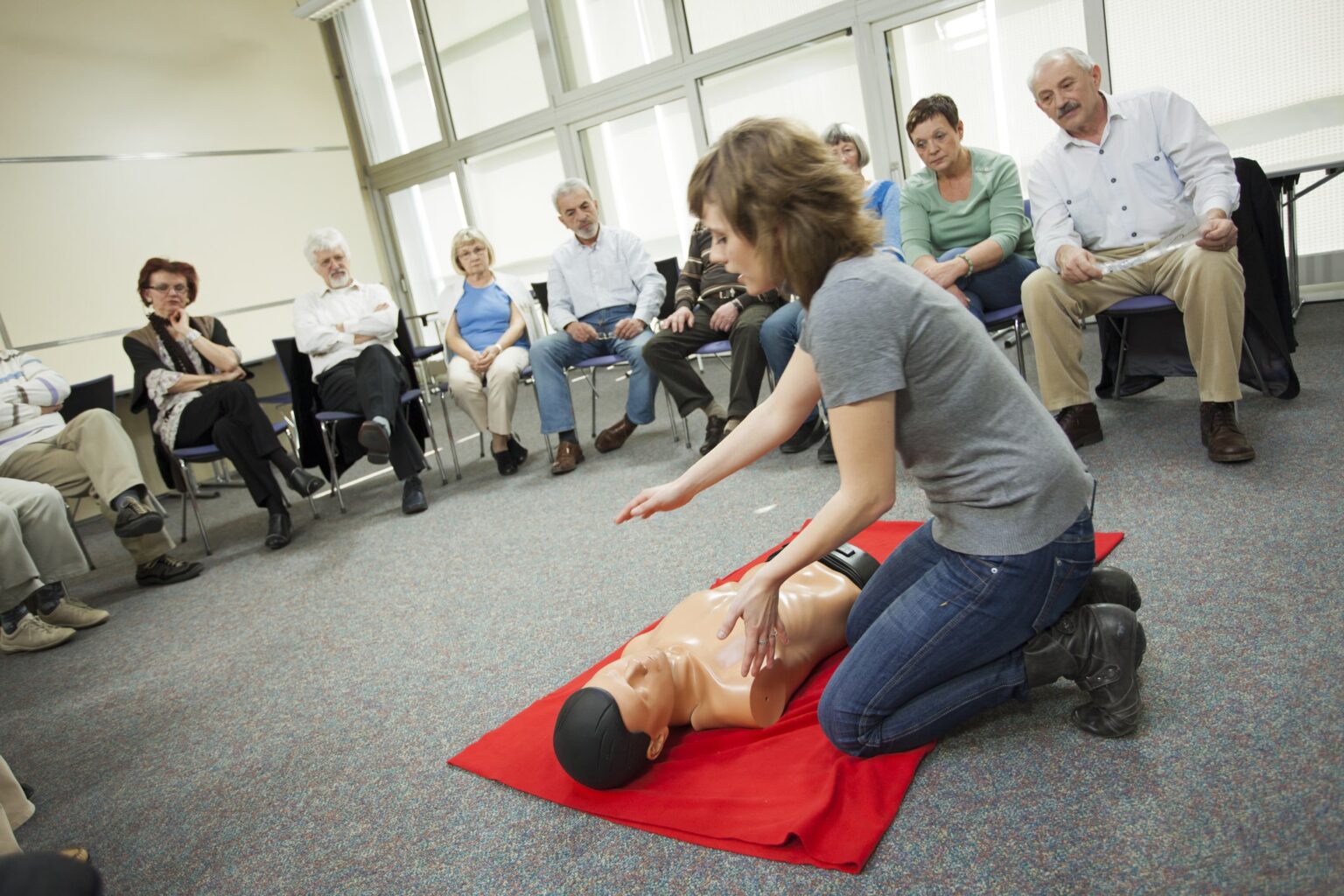American Heart Association© Group CPR Discount Classes in San Rafael

About Group Classes
Safety Training Seminars can come out to your place of business at any time on any day of the week to conduct BLS, CPR, and First-aid training courses. Our friendly instructors arrive on time, and bring out all the necessary supplies and equipment to conduct a fun and informative safety training course.
Alternative: If organizing a class at your location is complicated, you can send your staff out to take classes at one of our 57 offices located throughout Northern California.
Ask about Promo Code discounts.
More Information About Group Classes
Group CPR Training Classes in San Rafael: Building Lifesaving Skills and Community Resilience
Cardiopulmonary Resuscitation (CPR) is a critical lifesaving skill that can make a difference in emergencies such as cardiac arrest. In San Rafael, California, group CPR training classes offer individuals the opportunity to learn CPR techniques in a supportive and interactive environment. This article explores the importance of group CPR training, the offerings available in San Rafael, and the impact these classes have on building community resilience and preparedness.
The Importance of Group CPR Training
Cardiac arrest can occur suddenly and without warning, requiring immediate intervention to maintain blood circulation and oxygenation to vital organs. CPR is a technique that can help sustain life until emergency medical services arrive. Group CPR training provides individuals with the knowledge and skills needed to recognize cardiac arrest, perform CPR, and use an automated external defibrillator (AED) effectively.
Group CPR training goes beyond individual skill development to create a community of trained responders. By training together, individuals can support each other in learning and practicing CPR techniques, increasing their confidence and readiness to respond in real-life emergencies.
Group CPR Training Offerings in San Rafael
In San Rafael, group CPR training classes are offered by certified instructors who provide hands-on instruction and guidance. These classes are tailored to different audiences, including healthcare professionals, workplace teams, community groups, and schools. Participants learn the latest CPR techniques based on American Heart Association guidelines, including adult, child, and infant CPR, as well as how to use an AED.
Group CPR training classes in San Rafael emphasize the importance of teamwork and communication during emergencies. Participants learn how to work together to assess the situation, provide effective CPR, and coordinate with emergency services for a seamless response.
Impact of Group CPR Training
The impact of group CPR training extends beyond the individuals who receive the training to the entire community. By increasing the number of trained responders in San Rafael, group CPR training helps build a more resilient community capable of responding to emergencies effectively.
Group CPR training also raises awareness about the importance of CPR and the role that bystanders can play in saving lives. As more individuals in San Rafael become trained in CPR, the community’s overall readiness to respond to cardiac emergencies improves, potentially increasing the survival rate of those who experience cardiac arrest.
Conclusion
Group CPR training classes in San Rafael provide individuals with the knowledge and skills needed to respond effectively to cardiac emergencies. By training together, participants not only develop lifesaving skills but also contribute to building a more prepared and resilient community. Group CPR training helps ensure that San Rafael is ready to respond to emergencies and save lives when every second counts.
FAQs
Who should attend group CPR training classes in San Rafael?
Group CPR training classes are suitable for anyone interested in learning life-saving skills, including parents, teachers, caregivers, healthcare professionals, and members of the general public.
How long do group CPR training classes typically last?
Group CPR training classes usually span a few hours, depending on the training provider and the depth of instruction. Classes typically include a combination of theoretical instruction, hands-on practice, and skill demonstrations.
Is there a renewal requirement for group CPR training certification?
Yes, CPR certifications are typically valid for two years, after which individuals are required to undergo renewal courses to maintain their certification. Renewal courses often include updates on guidelines and protocols, as well as opportunities to refresh and practice essential skills. Renewing CPR certification ensures that individuals stay current with the latest best practices in CPR and are prepared to respond confidently to emergencies.
